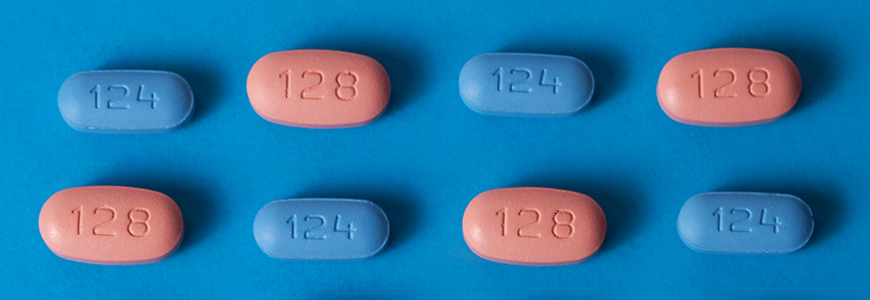Effective antiretroviral therapy (ART) has helped extend the lifespans of people living with HIV (PLWH), but the use of antiretroviral drugs requires an awareness of potential nephrotoxicity and drug interactions, particularly for patients with chronic kidney disease (CKD), as well as knowledge about the effects some newer drugs have on common laboratory tests used to estimate kidney function.
Christina Wyatt, MD, MSc, a Duke nephrologist, researcher, and specialist in treating kidney disease in people living with HIV (PLWH), says that kidney disease remains a significant concern among this population. In addition to kidney disease as a result of HIV infection or ART, PLWH may have faster progression of kidney disease in the setting of comorbid conditions such as diabetes.
In an ancillary study to the Strategic Timing of Antiretroviral Treatment (START) trial, Wyatt studies kidney disease risk among PLWH with high CD4+ T cell counts prior to initiation of ART. Earlier initiation of ART had a favorable impact on estimated glomerular filtration rate (eGFR) in the first 3 years of the trial, but longer exposure to some ART regimens may carry a risk of nephrotoxicity, she says. In particular, tenofovir disoproxil fumarate (TDF) and some protease inhibitors have been associated with potential nephrotoxicity.
In addition to concerns about toxicity, some antiretrovirals affect tubular secretion of creatine, she says, and can result in incorrect interpretation of serum creatinine as an estimate of kidney function or eGFR. The effects of these antiretrovirals may in essence “divorce the lab test results from the kidney function, and may require clinicians to acknowledge that the creatinine-based eGFR does not provide an accurate estimate of kidney function,” Wyatt says. Agents with a recognized effect on serum creatinine include dolutegravir and cobicistat, but other integrase strand inhibitors and rilpivirine may also affect serum creatinine measurements.
“The creatinine-based eGFR can still be used with the realization that patients should quickly reach a new baseline when starting certain HIV drugs and then stabilize at that point,” she adds.

